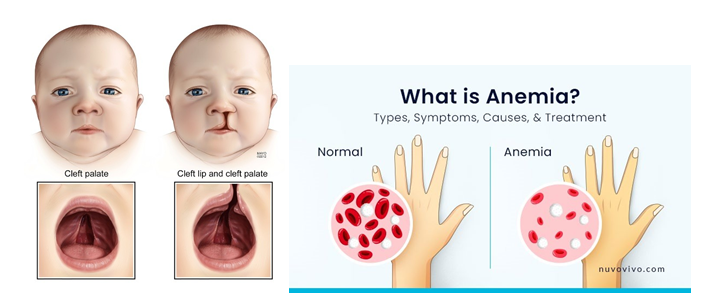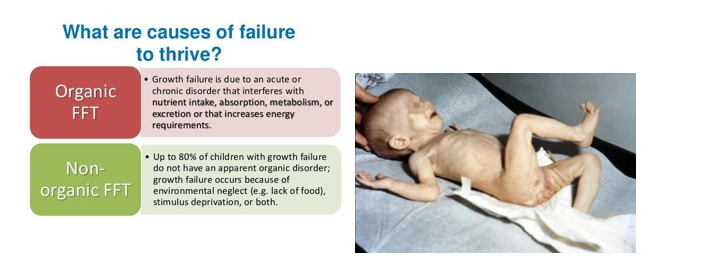A 9-week-old infant is scheduled for a cleft lip repair. Which information is most important for the nurse to convey to the surgeon before transporting the infant to the surgical suite?
White blood cell count of 10,000/mm (10x 10/L).
Weight gain of 2 pounds (0.91 kg) since birth.
Red blood cell count of 2.3 cell/mcl or (2.3 x 10/L).
Urine specific gravity is 1.011.
The Correct Answer is C
Answer: C. Red blood cell count of 2.3 cells/mcl or (2.3 x 10/L).
Rationale:
A. White blood cell count of 10,000/mm³ (10 x 10⁹/L): This is within the normal range for an infant, indicating no immediate concern for infection or immune response. It does not need to be urgently conveyed to the surgeon.
B. Weight gain of 2 pounds (0.91 kg) since birth: This is a positive sign indicating healthy growth and nutritional status, but it is not a critical concern that would affect the immediate surgical plan.
C. Red blood cell count of 2.3 cells/mcl or (2.3 x 10⁹/L): This low RBC count indicates anemia, which is critical information for the surgeon. Anemia can increase the risk of complications during and after surgery due to potential issues with oxygenation and healing, making it the most important information to convey.
D. Urine specific gravity is 1.011: This indicates normal hydration status and is not immediately relevant to the surgical procedure. It does not need to be urgently reported to the surgeon compared to the low RBC count.

Nursing Test Bank
Naxlex Comprehensive Predictor Exams
Related Questions
Correct Answer is A
Explanation
Answer: A. Biopsy may rupture the encapsulated tumor and cause the cancer cells to spread.
Rationale:
A) Biopsy may rupture the encapsulated tumor and cause the cancer cells to spread: This is the primary reason why surgery is performed before a biopsy in cases of Wilms tumor. The tumor is usually encapsulated, and performing a biopsy could risk breaking the capsule, leading to the dissemination of cancer cells into surrounding tissues, which can worsen the prognosis.
B) Metal clips are surgically applied at the tumor site for exact marking for radiation: While marking the tumor site for radiation is important, it is not the primary reason for performing surgery before a biopsy. The main concern is about the potential for cancer cell spread during a biopsy procedure.
C) Surgery is necessary to stage the tumor and determine metastasis to other sites: Although staging is a critical aspect of cancer management, the urgency of avoiding tumor rupture and subsequent spread is more pressing in this context. The surgery may assist in staging, but that is not the primary reason for immediate surgical intervention.
D) The surgery provides a visualization of other pathology and dysfunction of the kidney: While the surgical procedure may provide additional information about the kidney's condition, the most significant concern regarding Wilms tumor is preventing tumor rupture and the consequent spread of cancer cells, making this option less relevant.
Correct Answer is C
Explanation
The nurse should recognize that the statement "high-calorie formula encourages increased growth" is an appropriate understanding of interventions for an infant with FTT. High-calorie formula can help infants who are not gaining weight adequately to increase their calorie intake and promote growth.
Breast milk provides adequate nutrition for most infants, but in cases of FTT, the infant may require a higher calorie intake than breast milk can provide. Regular syringe feedings and fruit juice are not recommended interventions for FTT. Syringe feedings can cause aspiration and fruit juice does not provide the appropriate balance of nutrients needed for an infant's growth and development.

Whether you are a student looking to ace your exams or a practicing nurse seeking to enhance your expertise , our nursing education contents will empower you with the confidence and competence to make a difference in the lives of patients and become a respected leader in the healthcare field.
Visit Naxlex, invest in your future and unlock endless possibilities with our unparalleled nursing education contents today
Report Wrong Answer on the Current Question
Do you disagree with the answer? If yes, what is your expected answer? Explain.
Kindly be descriptive with the issue you are facing.
